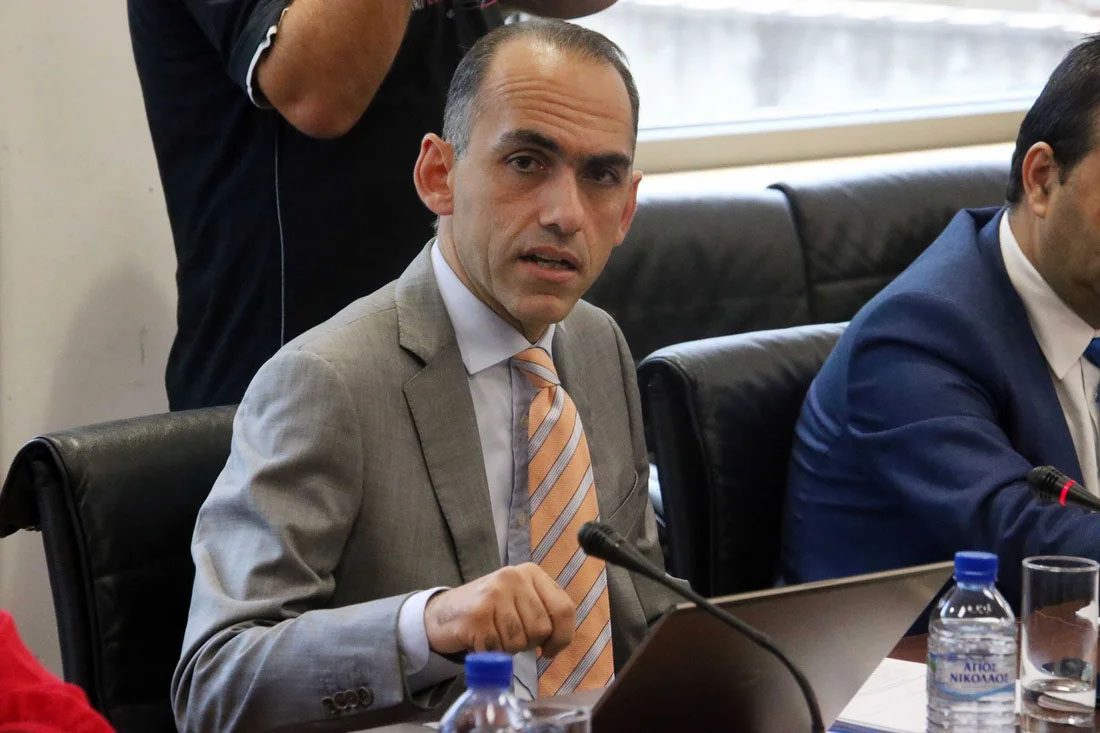I have read with interest Harris Georgiades' new book, The New Realism – The Cyprus Problem 50 years after the Turkish invasion.
All chapters of the book – with the exception of the last one – reflect a brief review of recent Cypriot political history. In general, I agree with the comments of the chair of the House of Representative’s foreign affairs committee. The book – rightly in my opinion – places heavy responsibilities on Makarios and his successors, as well as on Tassos Papadopoulos and Demetris Christofias, for the current plight of the Cyprus problem. In contrast, the author’s criticisms of Glafcos Clerides are mild and friendly, while Nicos Anastasiades, in whose cabinet the author was a key minister, is absolved of almost any responsibility for his transformation from a staunch supporter to a resolute opponent of the reunification of Cyprus.
The title of the book comes from its last chapter. In this last chapter, the author takes the view that “half a century after the Turkish invasion the prospect of an agreed solution being reached is remote and the partition of Cyprus has been consolidated in its harshest possible form,” while confining himself to mentioning that “the handling of the problem by the Greek Cypriot side was not the best possible.” After mentioning the fact that “active mobile telephone subscribers in the occupied areas have reached 777,000”, he concludes that “the rapid increase of the population in conjunction with the intense development activity … render a significant return of land or the restoration of property rights an unlikely prospect … and they leave no room for optimism that the withdrawal of the Turkish army and the termination of the guarantees could materialise.”
He then concludes: “All this data … must be evaluated and must form the basis of a new realistic approach”, without, however, specifying who should undertake such an evaluation. Thus, the author finally concludes that “this situation probably sets the conditions for a negotiation process that would not aim at a comprehensive solution, but, rather, would focus on important individual agreements that would bring benefits to all the parties involved in the process, improve the status quo and gradually build relations of trust … A step-by-step negotiation may be the only way out of perpetuating the stalemate.”
Similar views and suggestions have been advocated since 2010, by Polys Polyviou, a well-known lawyer in Cyprus.
This is the view of the ruling Greek Cypriot class, whose overall objective is the uncompromised maintenance of political control in Cyprus. In their view, any arrangement involving any kind of power sharing with the Turkish Cypriot side is unacceptable. This was the view of Tassos Papadopoulos (“I received a state and I will not hand over a community”). This was the view of Nikos Anastasiades (his struggle for an undefined loose federation; his brainstorming for a two-state arrangement) and this seems to be the view of Nikos Christodoulides and the political parties that have elected him.
For the reasons I set out in my book The Asia Minor Catastrophe of 1922 and the Cyprus Catastrophe of 1974 – A comparative study, a fundamental condition of any viable solution to the Cyprus problem is the severing of the umbilical cord that today serves as a political and economic link between northern Cyprus and Turkey. Solutions that have been developed and explained in sufficient detail do exist, but the ruling Greek Cypriot class persistently refuses to look carefully at these proposals and discuss them in public. Apparently, they do not want to share in any way the spoils of power with our Turkish Cypriot compatriots.
The question that remains unanswered is the following: Has Harris Georgiades’ suggestion for a “step-by-step approach” been adopted by Disy? If it has been adopted, Disy must state so publicly. If it has not, the party must call its member and chairman of the House foreign affairs committee to order, because we will never achieve the unanimity sought by the author of The New Realism, if we formulate and promote views that have not been adopted by the party to which we belong.
I very much fear that the “step-by-step approach” is a form of a covert partition of Cyprus, that has all the burdens (uncontrolled immigration, uncontrolled development, total turkification, absolute alienation) that are likely to take us to the bottom of the “blue homeland (mavi vatan)” sea.
The Russian president of the UN Security Council has stated that in the recent past there has been a “hardening” of the position of the Greek Cypriot side. We beg President Nikos Christodoulides to publicly clarify the issues to which this statement refers.
Christos Panayiotides is a political columnist/commentator. Harris Georgiades’ new book The New Realism – The Cyprus Problem 50 years after the Turkish invasion (in Greek)is published by Papazisis Publications







Click here to change your cookie preferences